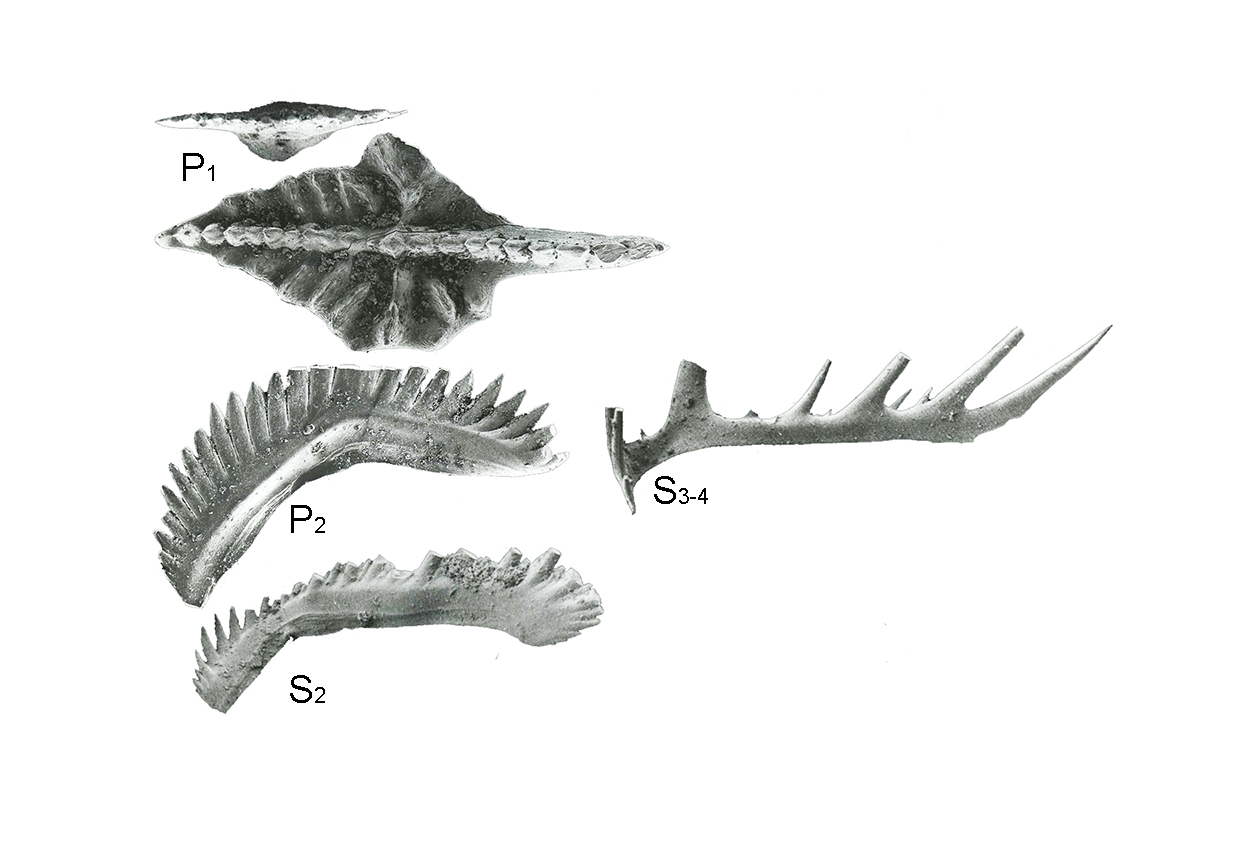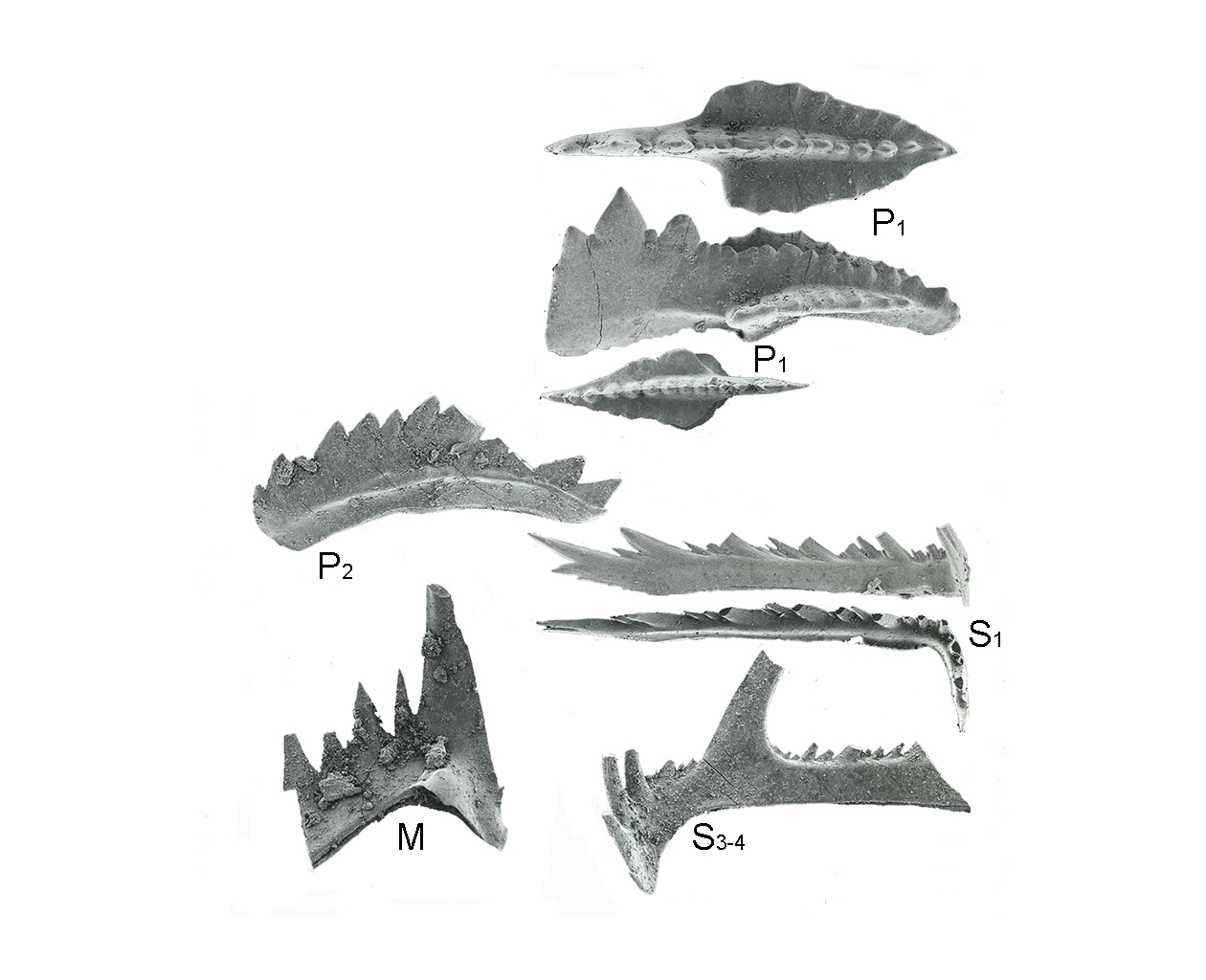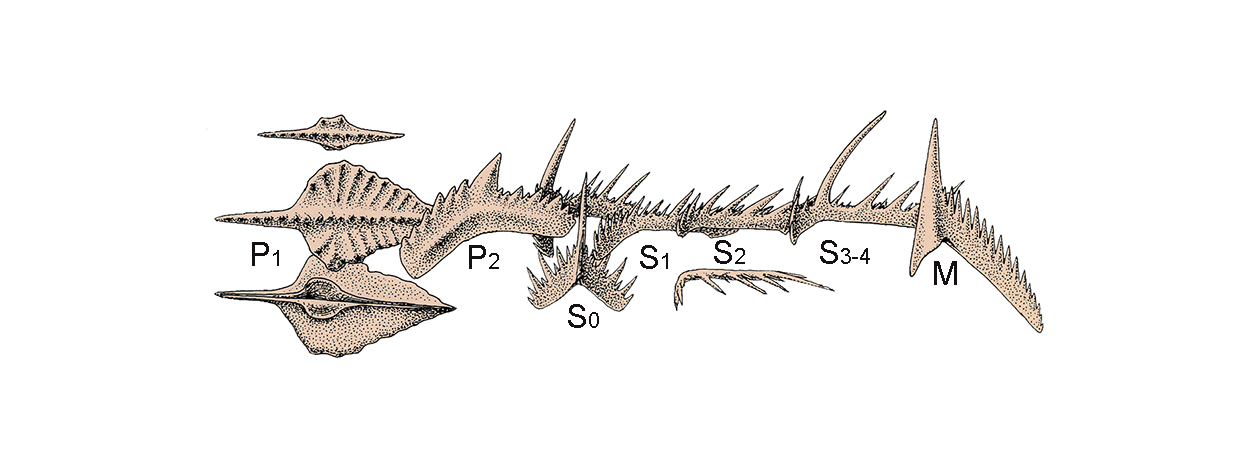Diagnoza
The elements P1 are generally robust but highly variable, some having prominent high ribs at the occlusal surface that look almost like denticles, others have a relatively thin platform ornamented with rather low sharp ribs. Porównanie
Juvenile specimens develop a platform much above the base but still below the main row of denticles, which makes them distinct from the co-occurring Pseudopolygnathus primus which still preserves an ancestral icrion-like arrangement of denticles, with only an incipient plafform. Autekologia Występowanie geograficzne
Dzikowiec in the Sudetes, Rhenish Slate Mountains, Muhua section in Guizhou Province, China. Zasięg czasowy
Tournaisian Materiały muzealne
ZPAL Literatura
Dzik, J. 1997. Emergence and succession of Carboniferous conodont and ammonoid communities in the Polish part of the Variscan sea. Acta Palaeontologica Polonica 42, 57-170. | 


